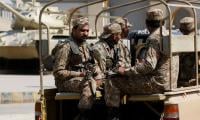Islamabad: The nutritional status of children in Pakistan has improved over the last five years, states the Key Indicators Report of the 2017-18 Pakistan Demographic and Health Survey (PDHS).
According to the report, it is heartening to find that the percentage of stunted children has declined from 45% in 2012-13 to 38% in 2017-18, and a similar downward trend, from 30% to 23%, has been observed for underweight children as well. Additionally, the percentage of children who are wasted has also declined from 11% to 7%.
The report, which presents a first look at latest estimates of basic demographic and health indicators, will be followed in December 2018 by a final report presenting comprehensive data analysis. The findings will assist policymakers in designing strategies to improve the health of the country’s population. The 2017-18 PDHS has been implemented by the National Institute of Population Studies (NIPS) under the aegis of the Ministry of National Health Services.
The Key Indicators Report reveals that an overall 38% percent children in Pakistan are stunted while 17% are severely stunted. Stunting increases with age, peaking at 48% among children aged 24-35 months. A higher proportion of children in rural areas (41%) than urban areas (31%) are stunted. Children of women with no education are more likely to be stunted than those whose mothers are educated. Stunting is inversely related with wealth quintile; 57% of children in the lowest wealth quintile are stunted, as compared with 22% of children in the highest quintile. Further results show that 23% of all children under 5 are underweight, and 8% are severely underweight. Children who are obese has remained at 3%.
The 2017-18 PDHS collected data on a number of key child health indicators, including vaccinations of young children, nutritional status as assessed by anthropometry, infant feeding practices, and treatment practices when a child is ill. According to the report, vaccination coverage has improved over the past five years from 54% to 66%. Overall, 66% children aged 12-23 months have received all basic vaccinations, 51% have received all age-appropriate vaccinations, and 4% have not received any vaccinations.
Presenting data on childhood Acute Respiratory Infection (ARI), fever and diarrhoea, the report informs that 14% children under age 5 showed symptoms of ARI, 38% had fever, and 19% experienced diarrhoea in the two weeks preceding the survey. Treatment from a health facility or provider was sought for 85% of the children with ARI symptoms, 82% of those with fever, and 71% of those with diarrhoea. Moreover, 37% children with diarrhoea received a rehydration solution from an oral rehydration salt (ORS) packet, 13% were given zinc supplements, and 8% received both ORS and zinc supplements.
The 2017-18 PDHS also collected data on infant and young child feeding (IYCF) practices for all children born in the two years preceding the survey. Contrary to the recommendation that children under age 6 months be exclusively breastfed, only 48% of the infants under age 6 months fell in this category. However, this shows improvement over the past 5 years when 38% of children under 6 months were exclusively breastfed. In addition to breastmilk, 8% of these young infants consume plain water, 1% consume non-milk liquids, 23% consume other milk, and 13% consume complementary foods. Thirty-seven percent of infants under age 6 months are fed using a bottle with a nipple, a practice that is discouraged because of the risk of illness.
Fifty-four percent of children age 6-8 months receive timely complementary foods, and 44% of children age 18-23 months have been weaned.
Outgoing ambassador pays farewell call on President Asif Ali Zardari at Aiwan-e-Sadr on Monday
Committee urges ministry to expedite appointment process, emphasizing improved governance
Former SCBA presidents say case will determine future course of country’s constitutional framework
Petitioner asks court to issue directives for registration of case against government officials
"Whether now or later, PTI will definitely demand its mandate," says Rana Sanaullah
PNAP leader condemns alleged manipulation and calls for fair and transparent elections in said constituency







